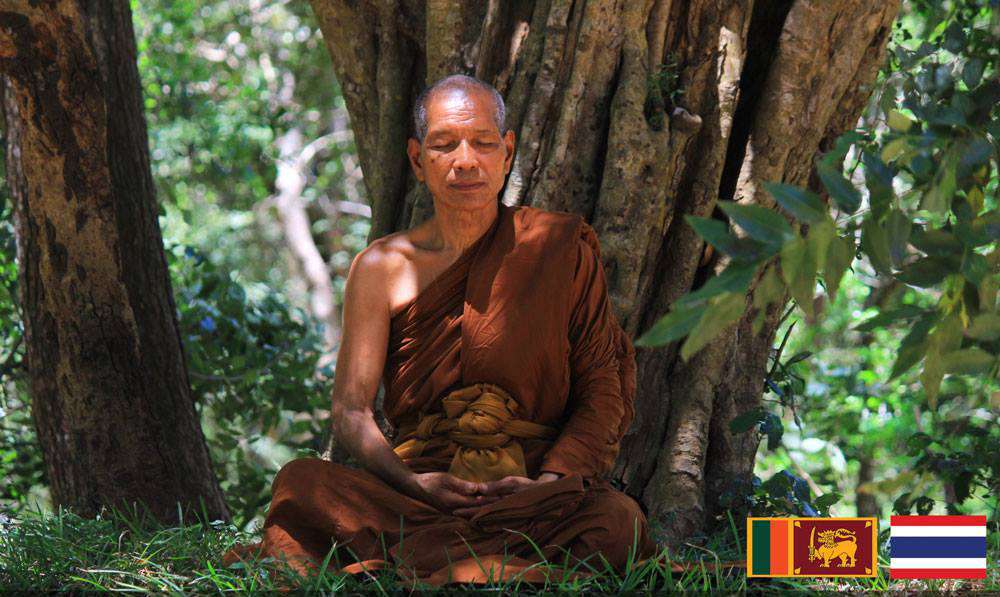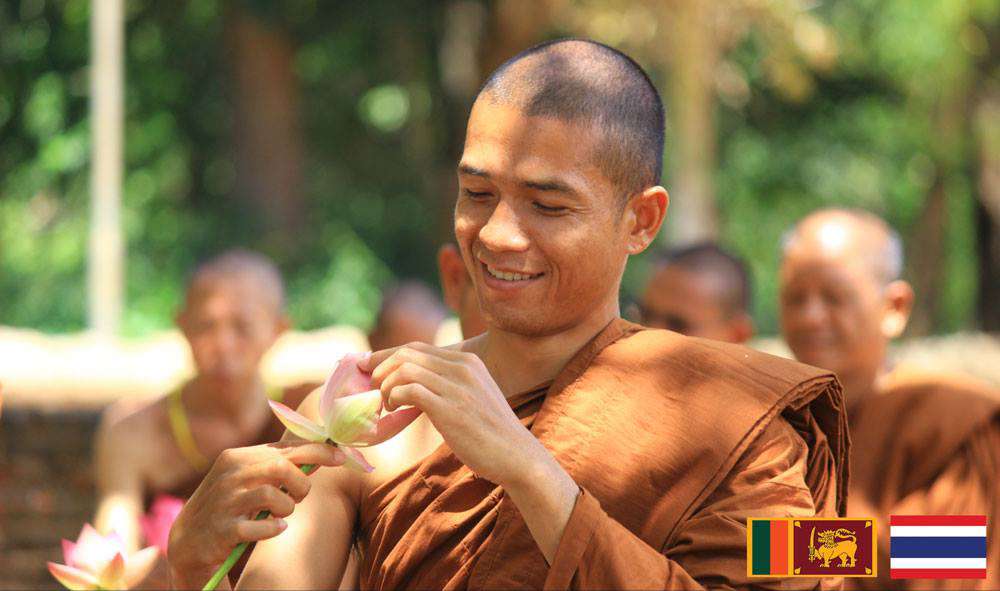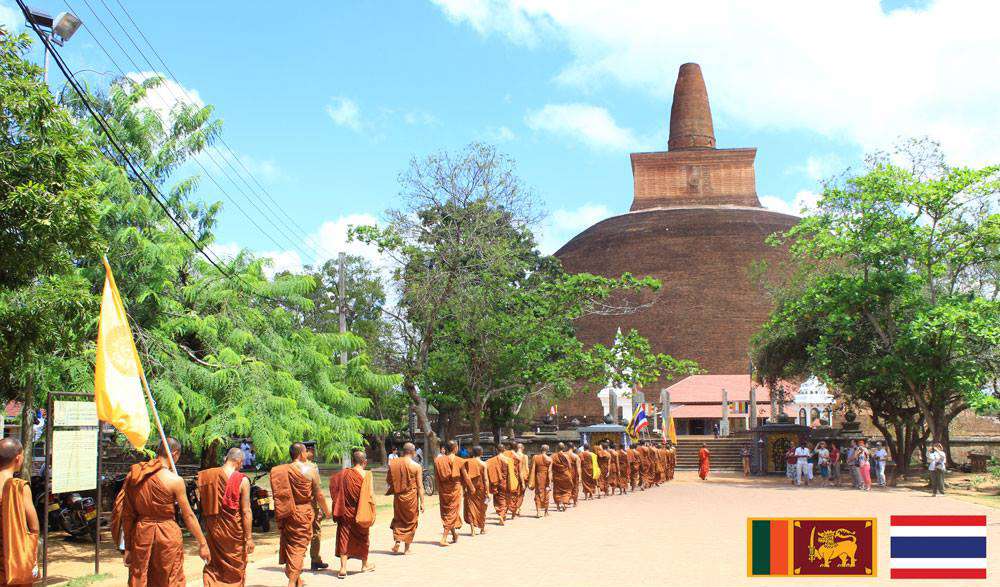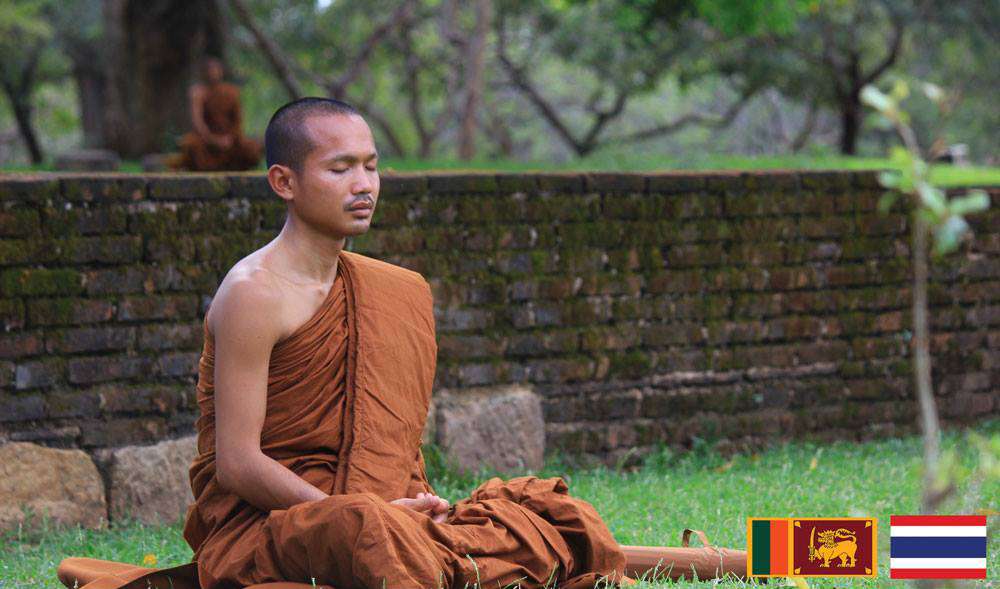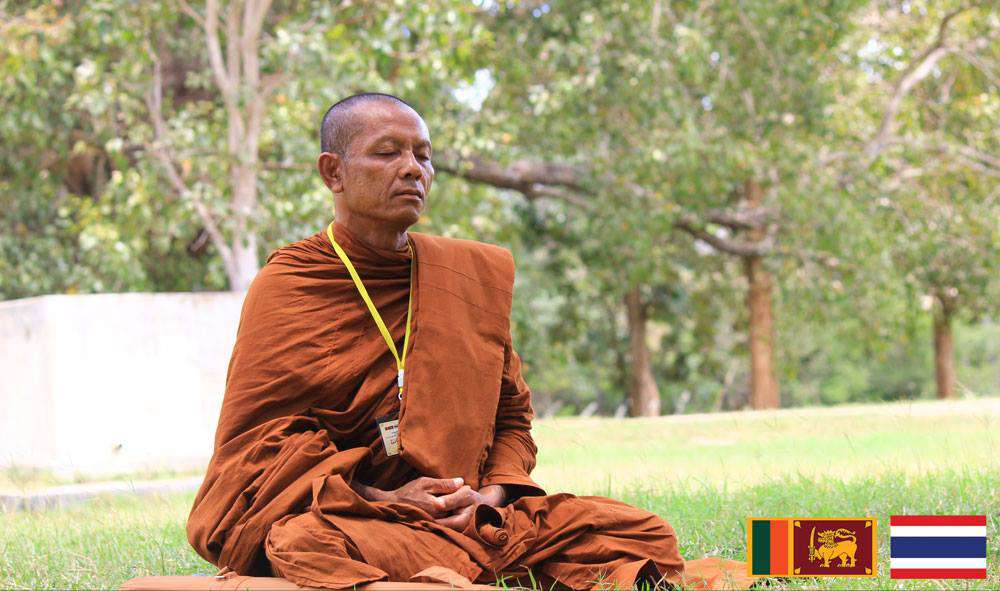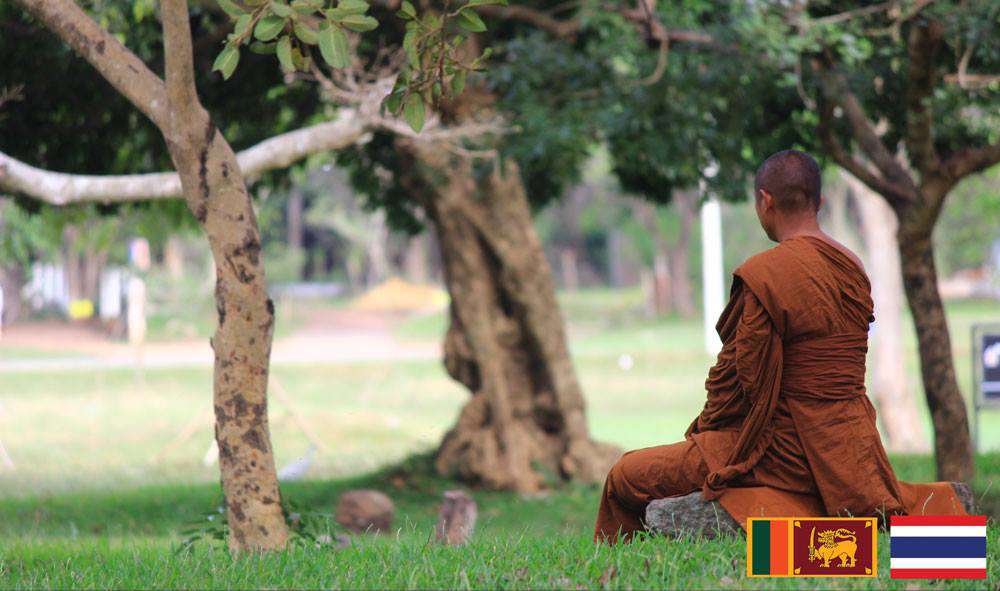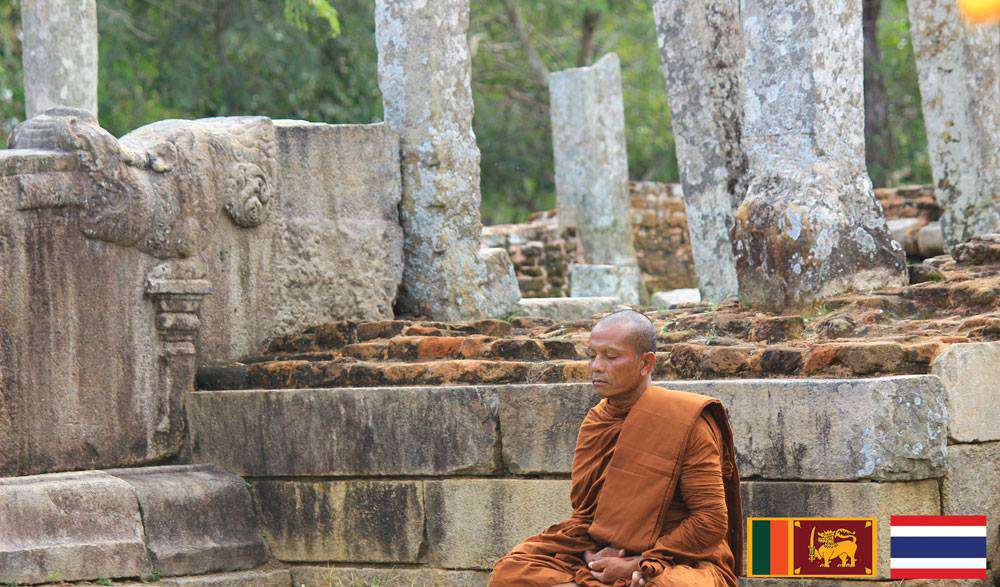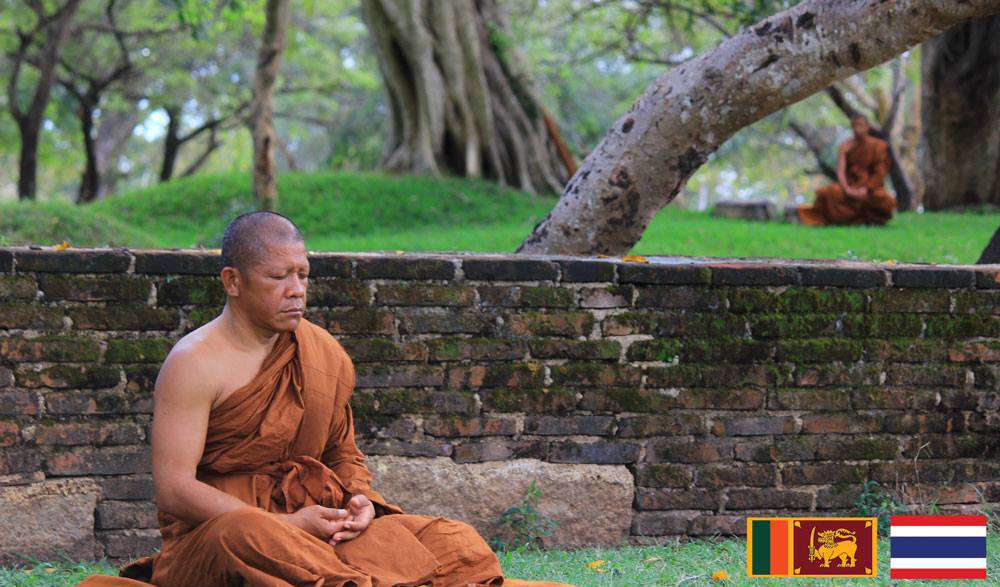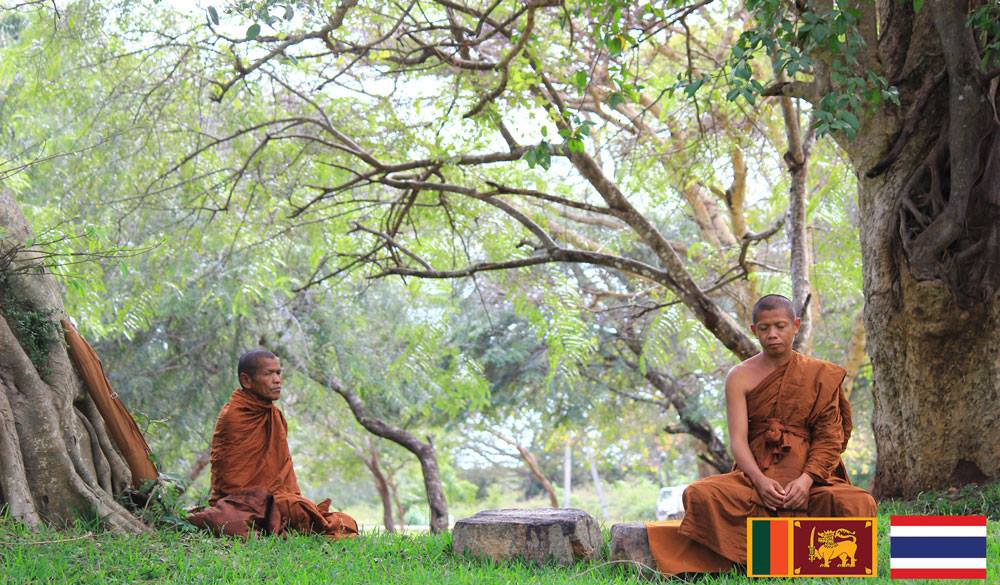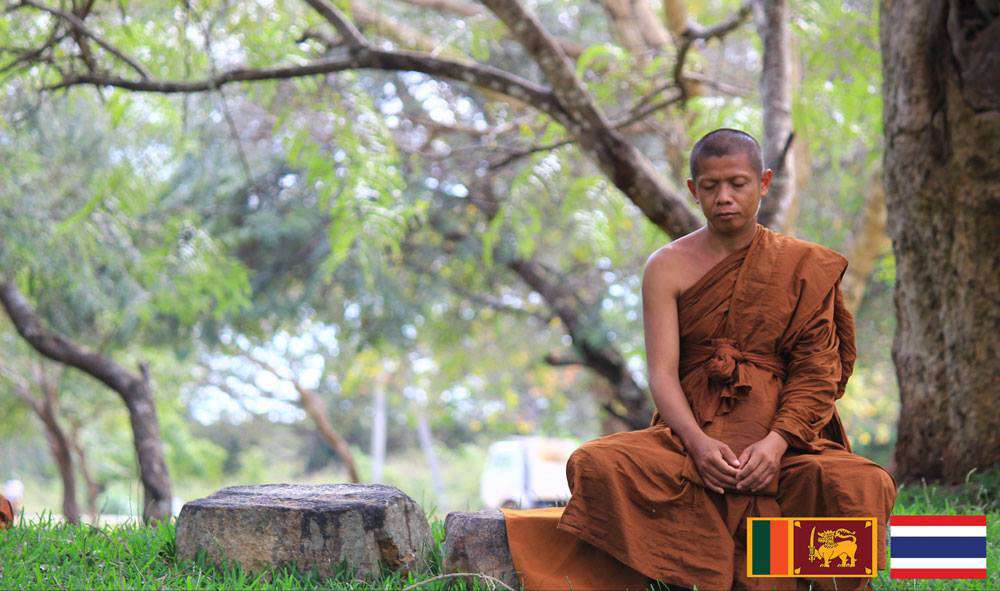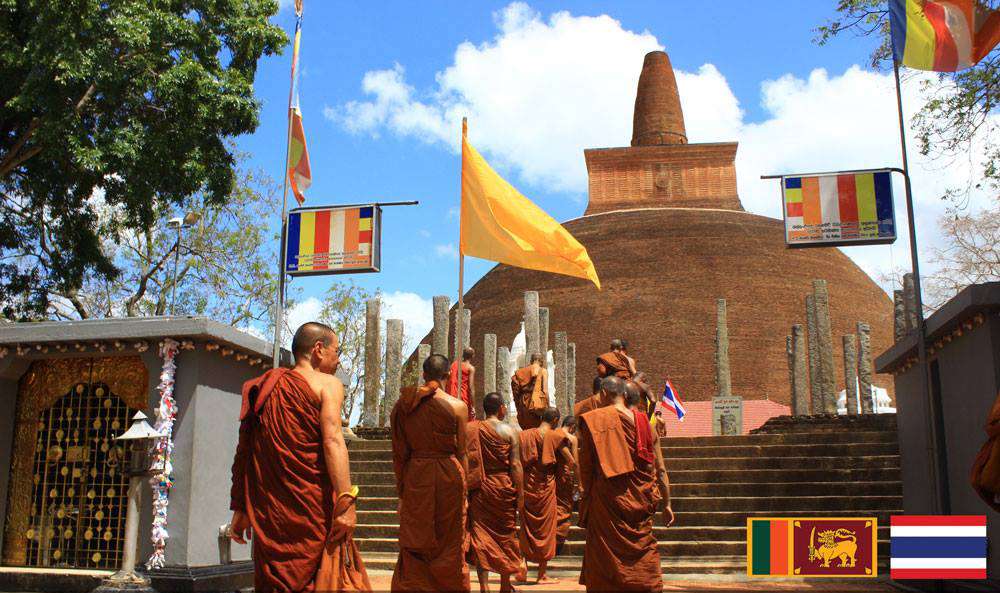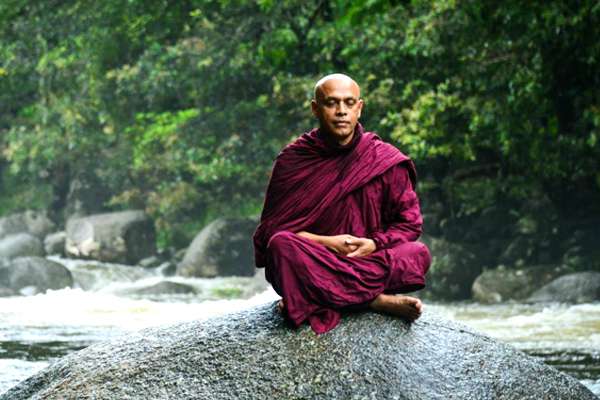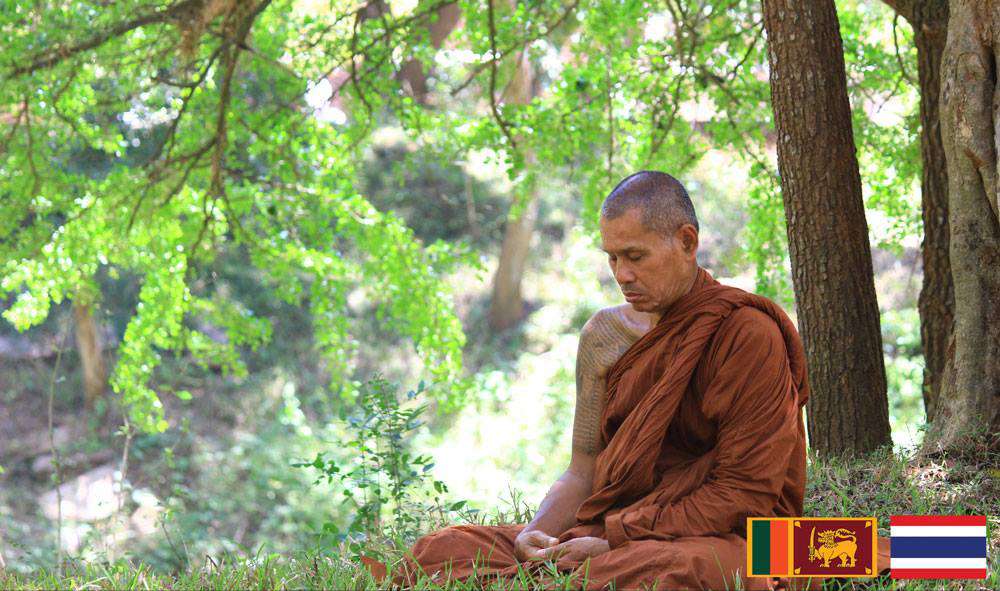4. Dhammānupassanā: Contemplation of Phenomena
4.1 Nīvaraṇa Pabbaṁ: Section on the Hindrances
Kathañca bhikkhave bhikkhu / dhammesu dhammānupassī viharati?/
“And how, monks, does a monk dwell contemplating phenomena in phenomena?
Idha bhikkhave bhikkhu / dhammesu dhammānupassi viharati;/ pañcasu nīvaraṇesu./
“Here monks, a monk dwells contemplating phenomena in phenomena • in terms of the five hindrances.
Kathañca bhikkhave bhikkhu dhammesu dhammānupassī viharati pañcasu nīvaraṇesu?/
And how does monks, a monk dwell contemplating phenomena in phenomena • in terms of the five hindrances?
Idha bhikkhave bhikkhu / santaṁ vā ajjhattaṁ kāmacchandaṁ,/ ‘atthi me ajjhattaṁ kāmacchando’ti pajānāti./ Asantaṁ vā ajjhattaṁ kāmacchandaṁ,/ ‘natthi me ajjhattaṁ kāmacchando’ti pajānāti./ Yathā ca anuppannassa kāmacchandassa uppādo hoti,/ tañca pajānāti./ Yathā ca uppannassa kāmacchandassa pahānaṁ hoti,/ tañca pajānāti./ Yathā ca pahīnassa kāmacchandassa āyatiṁ anuppādo hoti / tañca pajānāti./
“Here, monks, there being sense desire in him, • a monk understands: • ‘There is sense desire in me.’ There being no sense desire in him, he understands: • ‘There is no sense desire in me.’ He also understands how there comes to be • the arising of unarisen sense desire, • how there comes to be the abandoning of arisen sense desire, • and how there comes to be the future non-arising of abandoned sense desire.
Santaṁ vā ajjhattaṁ vyāpādaṁ,/ ‘atthi me ajjhattaṁ vyāpādo’ti pajānāti./ Asantaṁ vā ajjhattaṁ vyāpādaṁ,/ ‘natthi me ajjhattaṁ vyāpādo’ti pajānāti./ Yathā ca anuppannassa vyāpādassa uppādo hoti / tañca pajānāti./ Yathā ca uppannassa vyāpādassa pahānaṁ hoti / tañca pajānāti./ Yathā ca pahīnassa vyāpādassa āyatiṁ anuppādo hoti,/ tañca pajānāti./
“There being ill will in him, • a monk understands: • ‘There is ill will in me.’ There being no ill will in him, he understands: • ‘There is no ill will in me.’ He also understands how there comes to be • the arising of unarisen ill will, • how there comes to be the abandoning of arisen ill will, • and how there comes to be the future non-arising of abandoned ill will.
Santaṁ vā ajjhattaṁ thīnamiddhaṁ,/ ‘atthi me ajjhattaṁ thīnamiddhan’ti pajānāti./ Asantaṁ vā ajjhattaṁ thīnamiddhaṁ,/ ‘natthi me ajjhattaṁ thīnamiddhan’ti pajānāti./ Yathā ca anuppannassa thīnamiddhassa uppādo hoti,/ tañca pajānāti./ Yathā ca uppannassa thīnamiddhassa pahānaṁ hoti,/ tañca pajānāti./ Yathā ca pahīnassa thīnamiddhassa āyatiṁ anuppādo hoti,/ tañca pajānāti./
“There being dullness and drowsiness in him, • a monk understands: • ‘There is dullness and drowsiness in me.’ There being no dullness and drowsiness in him, • he understands: • ‘There is no dullness and drowsiness in me.’ He also understands how there comes to be • the arising of unarisen dullness and drowsiness, • how there comes to be the abandoning of arisen dullness and drowsiness, • and how there comes to be the future non-arising • of abandoned dullness and drowsiness.
Santaṁ vā ajjhattaṁ uddhacca kukkuccaṁ,/ ‘atthi me ajjhattaṁ uddhacca kukkuccan’ti pajānāti./ Asantaṁ vā ajjhattaṁ uddhacca kukkuccaṁ / ‘natthi me ajjhattaṁ uddhacca kukkuccanti’ pajānāti./ Yathā ca anuppannassa uddhacca kukkuccassa uppādo hoti,/ tañca pajānāti./ Yathā ca uppannassa uddhacca kukkuccassa pahānaṁ hoti,/ tañca pajānāti,/ yathā ca pahīnassa uddhacca kukkuccassa āyatiṁ anuppādo hoti,/ tañca pajānāti./
“There being restlessness and remorse in him, • a monk understands: • ‘There is restlessness and remorse in me.’ There being no restlessness and remorse in him, • he understands: • ‘There is no restlessness and remorse in me.’ He also understands how there comes to be • the arising of unarisen restlessness and remorse, • how there comes to be the abandoning of arisen restlessness and remorse, • and how there comes to be the future non-arising • of abandoned restlessness and remorse.
Santaṁ vā ajjhattaṁ vicikicchaṁ,/ ‘atthi me ajjhattaṁ vicikicchā’ti pajānāti./ Asantaṁ vā ajjhattaṁ vicikicchaṁ,/ ‘natthi me ajjhattaṁ vicikicchā’ti pajānāti./ Yathā ca anuppannāya vicikicchāya uppādo hoti,/ tañca pajānāti./ Yathā ca uppannāya vicikicchāya pahānaṁ hoti,/ tañca pajānāti./ Yathā ca pahīnāya vicikicchāya āyatiṁ anuppādo hoti,/ tañca pajānāti./
“There being doubt in him, a monk understands: • ‘There is doubt in me.’ There being no doubt in him, he understands: • ‘There is no doubt in me.’ He understands how there comes to be the arising of unarisen doubt, • how there comes to be the abandoning of arisen doubt, • and how there comes to be the future non-arising of abandoned doubt.
Iti ajjhattaṁ vā dhammesu dhammānupassī viharati,/ bahiddhā vā dhammesu dhammānupassī viharati,/ ajjhatta bahiddhā vā dhammesu dhammānupassī viharati./
“In this way he dwells contemplating phenomena in phenomena within himself, • he dwells contemplating phenomena in phenomena within another, • and he dwells contemplating phenomena in phenomena both within himself and within another.
Samudaya dhammānupassī vā dhammesu viharati,/ vaya dhammānupassī vā dhammesu viharati,/ samudaya vaya dhammānupassī vā dhammesu viharati./
“He dwells contemplating the arising of the phenomena, • he dwells contemplating the passing away of the phenomena, • and he dwells contemplating the arising and passing away of the phenomena.
Atthi dhammāti vā panassa sati paccupaṭṭhitā hoti,/ yāvadeva ñāṇa mattāya patissati mattāya./ Anissito ca viharati./ Na ca kiñci loke upādiyati./
“Mindfulness, that there are phenomena • is simply established in him • to the extent necessary for higher knowledge and mindfulness. He dwells independent, and not clinging to anything in the world.
Evampi kho bhikkhave bhikkhu / dhammesu dhammānupassī viharati / pañcasu nīvaraṇesu./
That is how monks, a monk dwells contemplating the phenomena in phenomena • in terms of the five hindrances.


